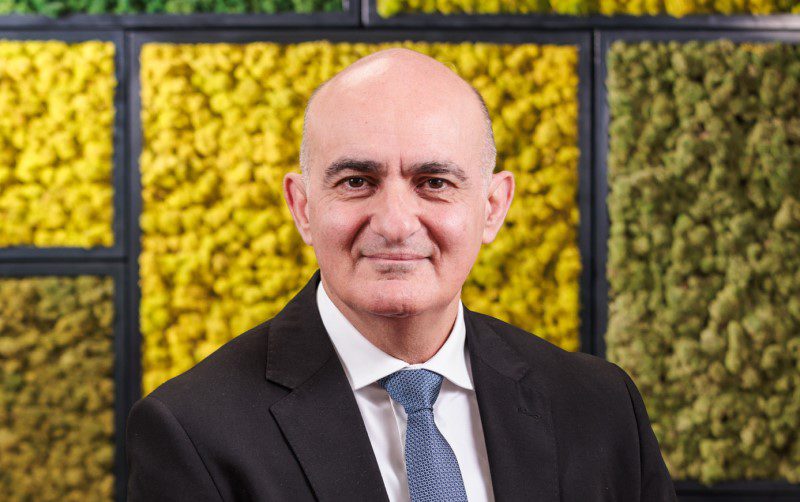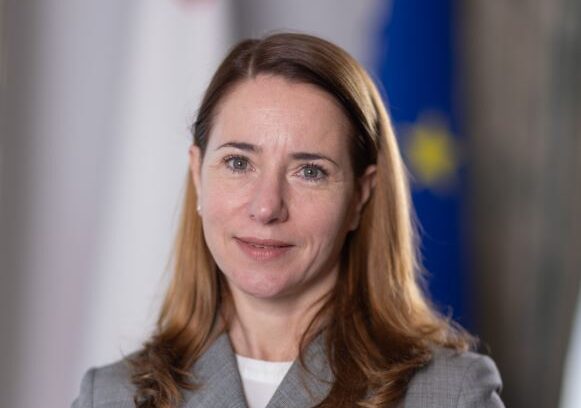APS Bank CEO Marcel Cassar has stated that Malta’s current banking infrastructure does not serve customers well, particularly given changing consumer behaviour.
His comments came during the bank’s interim market update for the first six months of 2024, where he was asked whether the stars are aligning for consolidation in the local banking scene, and how he anticipates the market to evolve in the coming years.
This question comes after news from last June that a Europe-listed group of companies has expressed interest in acquiring a 49.9 per cent stake in Izola Bank plc, together with its parent companies. The move was welcomed by the Maltese bank’s Board of Directors, stating that it would potentially strengthen the bank’s capital position and further develop its business lines.
On the other hand, there’s been no shortage of talk about HSBC’s potential exit from Malta in recent years, something that HSBC Malta CEO Geoffrey Fichte has dismissed on a number of occasions. However, the wider HSBC Group has faced pressure from shareholders to focus on its growing Asia business and shed operations in other markets. Will a new HSBC Group CEO implement this strategic shift?
In his response, Mr Cassar refrained from commenting directly on these cases, and said that in order to analyse whether it is time for consolidation in the banking sector, one has to observe what customers want from banks, who these customers are, if they are being well served, and where the competition is coming from.
He remarked that reports from Thursday morning about Revolut’s increased presence in Malta, to the extent that seven out of 10 adults in Malta use the application, confirm that “consumer behaviour has changed significantly, not only in Malta.”
“There are new players in the market that are introducing competition, there are huge onerous requirements on banks, primarily from regulation, and also higher expectations from consumers. These are all forces happening together,” Mr Cassar said.
He thus questioned whether the banking structure is adequate and whether it is serving the needs of today’s consumers well, to which he said that in his opinion, “the answer is no.”
“I think many and big improvements have been made by banks in terms of channels, services and products, but there is room for much more improvement. Consolidation is one obvious solution to this,” Mr Cassar stated.
However, he pointed out that the approach to consolidation is not necessarily so simple.
He compared the situation to that of transport in Malta, stating that there are too many cars and it is an area where there has to be consolidation. “But it does not mean that you simply have to start reducing the number of cars, it means that you have to introduce new types of transportation which can serve the needs of consumers better,” he continued.
Mr Cassar said that there is room for consolidation in the banking sector, as there is space for better quality service to consumers in Malta.
“How and when that will happen is not for me to say, and I think regulators have an important role to play here. The role of regulators is not only to throw regulations at banks, but also to give guidance on the conduct and structure of the industry so that consumers are served as best as possible,” Mr Cassar stated.
Taking a more micro approach, he said that APS Bank has been growing and investing heavily in new infrastructure, technology, governance, systems and talent over the years, increasing its capacity to serve more of the market.
“I think the market is crying for consolidation and some direction or planning,” he remarked, before reaffirming that this needs to first and foremost come from regulatory and supervisory authorities.
APS Bank’s first half of 2024 performance
During the market update, APS Bank presented its financial results for the first six months of 2024.
In the reporting period (1H 2024), it registered a pre-tax profit of €10.1 million, a decrease of 39.9 per cent from the €16.8 million recorded in the same period last year, mainly due to compression in interest rate margins.

This was also the case at bank level, where it recorded a profit before tax of €9.9 million in 1H 2024, a sharp decrease from the €16.1 million recorded in 1H 2023.
As was the case in the first three months of 2024, the reporting period was marked by margin compression resulting from higher interest rate expenses, driven by a buildup of minimum requirement for own funds and eligible liabilities (MREL) late in 2023.
During 1H 2024, APS Bank generated €56 million in interest income, an increase of 11.4 per cent when compared to the same period last year. Interest expense surged upwards by 83.2 per cent from €12.5 million in 1H 2023 to €22.9 million in 1H 2024, a result of higher interest paid on euro deposits.
Net fee and commission income rose by 12.7 per cent to €4.5 million (1H 2023: €4 million), in sync with the growth in business activity of the group.
APS Bank’s net impairment losses totalled €2 million. The group also closed the six-month period with a non-performing loans ratio of 1.9 per cent, its lowest level in years.
At group level, APS Bank’s total assets stood at €3.8 billion at the end of the reporting period, a growth of three per cent over the €3.7 billion recorded at the end of 2023.
APS Bank also announced that its Board of Directors has resolved to declare the payment of an interim net dividend of €2 million (gross dividend of €3,076,923), equating to €0.00527 cents per ordinary share (gross dividend of €0.00811 cents per ordinary share). The interim dividend, which is still subject to regulatory approval, will be given to shareholders appearing on the company’s register on 22nd August 2024 (last trading day is 20th August 2024).
Commenting on the results, Mr Cassar said that the second half of 2024 is expected to present “steadier global economic growth” with an easing of monetary policy and further interest rate cuts as inflationary pressures continue to moderate. At the same time, regional differences, geopolitical risks and trade tensions will also need to be managed “carefully to calm down market volatility and potential asset price corrections.”
He said major European banks, including the core Maltese ones, “have remained resilient, largely operating with ample liquidity and capital headroom that enabled them to post record profits helped mainly by the high interest rate conditions.”
However, Mr Cassar said that there are “beneath-the-surface challenges” for banks as the environment remains “highly dynamic and competitive.”
He affirmed that APS Bank’s business model is to take a more medium to long-term view beyond the recent interest rate cycle which has delivered substantial profits to some banks.
“The corrective actions we announced earlier this year to ease pressure on our margins started to yield results in the second quarter, as profitability improved while our pricing remained competitive,” Mr Cassar stated.
Featured Image:
APS Bank CEO Marcel Cassar / APS Bank
Alison Micallef appointed CEO at Malta Development Bank
She steps into the new role effective immediately.
Impact beyond profit: CSR in Malta is a must in 2025
Nowadays, corporate social responsibility can no longer take a backseat in your business's vision.
Malta’s private equity sector urged to seize opportunities at high-level CEO seminar
Panellists highlighted Malta’s potential as a destination for private capital, citing its English-speaking workforce, regulatory accessibility, and strategic location.
Ronald Attard takes on expanded role as Managing Partner for Risk Management at EY Europe Central
He has built experience in management accounting, corporate finance, and mergers and acquisitions.









